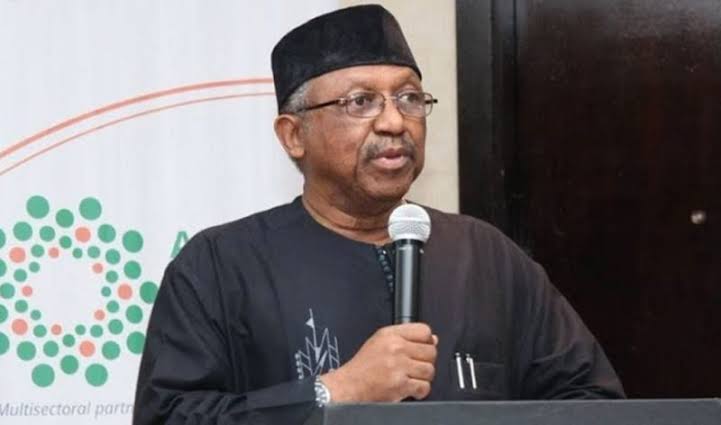The federal government has granted a N100 billion loan to indigenous pharmaceutical manufacturers and healthcare investors to expand their capital base and boost local production of medicines and medical consumables.
President Muhammadu Buhari, who disclosed this Tuesday at the State House in Abuja while playing host to the new executive members of the Nigerian Medical Association (NMA), explained that the loan was extended through the Central Bank of Nigeria’s (CBN) support to the private pharmaceutical sector.
According to him, the Health Sector Reform Committee chaired by Vice-President Yemi Osinbajo, is currently exploring models for revitalizing the nation’s healthcare system in ways that will improve the quality of care and the benefit package to care providers.
Commenting on the brain drain in the health sector, the president said he has directed the Minister of Health, Dr Osagie Ehanire, to look into ways of turning “brain drain” to “brain gain” by engaging top Nigerian medical experts in the diaspora in knowledge and skills repatriation.
He urged the association and other stakeholders in the health sector to support initiatives by the federal government and work with the committees set up to chart a fast-track to a health system that best meets the needs of Nigerians in the 21st century.
The president also commended the association, which is the umbrella body of all medical practitioners in Nigeria, for consistently choosing peaceful resolution of differences on matters pertinent to the national health system.
He said: ‘‘I commend our medical professionals for their contribution to Nigeria’s exemplary management of the COVID-19 pandemic, the control of malaria, HIV and Tuberculosis, and other feats also achieved by Nigerian doctors in the diaspora.
‘‘Our response to COVID-19 pandemic has been praised internationally and your members are key parts of this success.
‘‘I recall that in the last quarter of 2021, the immediate past NMA executives visited me and presented recommendations for the health sector, which included the review and amendment of NHIS Act; upgrading and equipping existing health institutions; loans to fund hospital equipment; the repeal and re-enactment of the Medical and Dental Practitioners’ Act; and appeal for more funding for the four newly established Universities of Medical Sciences.
‘‘I am pleased to inform you that most of these recommendations have been addressed, whilst further action is being taken to study those involving cross-cutting administrative processes with legal implications.’’
The president also used the forum to congratulate a former president of the body, Dr. Osahon Enabulele, the president-elect of the World Medical Association, the first Nigerian to hold the position.
While wishing him a successful tenure, the president expressed hope that Enabulele would use his position to support improvement in health care delivery in Nigeria and lower income countries.
He also wished the new executive members of NMA a successful tenure, urging them to earnestly continue to serve as arbiters of peace and progress.
Speaking earlier, the Minister of Health, Ehanire, who led the medical practitioners to the audience, affirmed that the doctors have been good partners with his ministry, helping to regulate the health profession, as well as stressing quality service delivery.
On his part, the NMA President, Dr Uche Ojinmah, commended President Buhari for his steadfast war against corruption; assent to the National Health Insurance Authority (NHIA) Act, which will “improve the health indices of our nation”, the constitution of the Health Reform Committee under Vice-President Osinbajo and the various infrastructural projects embarked upon by the Buhari administration.
He enjoined the president to ensure full and appropriate implementation of the NHIA Act; provision of “adequate work equipment, conducive work environment and necessary budget support”, as well as elongation of the retirement age for medical consultants to 70 years and 65 years for non-consultant doctors and other healthcare workers.
Others include the implementation of the Hazard Allowance circularized in December 2021 with the arrears, as well as the setting up of a Health Bank.
